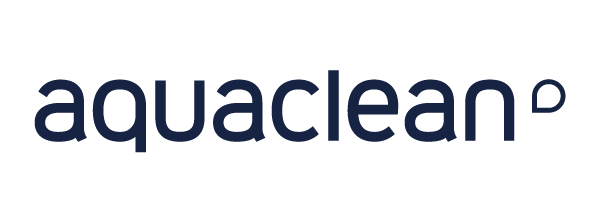Reducir,
Reutilizar y Reciclar
aquaclean®
y el medioambiente
REDUCE, REUSA Y RECICLA
En aquaclean somos responsables y tenemos un compromiso. Un compromiso con el planeta para poder dejar un lugar mejor donde vivir a nuestros nietos.
Por eso, dentro de nuestra política de sostenibilidad y siguiendo los Objetivos de Desarrollo Sostenible (ODS), hemos decidido actuar apostando por las 3 R’s: REDUCIR, REUTILIZAR Y RECICLAR, incorporándolos en todos los procesos de diseño y fabricación de nuestros tejidos.

Cómo ayuda aquaclean® al medioambiente
En aquaclean diseñamos y elaboramos tejidos duraderos y respetuosos con el medio ambiente que pueden limpiarse simplemente con agua; sin jabón ni otros químicos. De esta forma, no solo te hacemos la vida más fácil, sino que también reducimos la carga contaminante de vertidos domésticos, disminuyendo, además, el impacto sobre ríos, mares y océanos.
Nos esforzamos en la creación de ecodiseños que disminuyan la huella de carbono y la huella hídrica con el último objetivo de diseñar y producir tejidos duraderos y respetuosos con el medio ambiente.
Colecciones recicladas y reciclables
Llevamos el ecodiseño en nuestro ADN, nuestra última colección procede 100% de plástico reciclado de botellas. Cada metro de tejido proviene de aproximadamente 20 botellas de plástico de 1,5 litros. De esta forma, cerramos el ciclo de este tipo de material no reutilizable dándole una nueva vida en forma de tejidos para tu hogar.
Te ayudamos a reciclar
En aquaclean® siempre te lo ponemos muy fácil, por eso, te dejamos este enlace para que aprendas a reciclar correctamente y así puedas seguir aportando tu granito de arena al planeta.
¿Quieres saber cómo reciclar?
Para nosotros el “no tires, reutiliza siempre” es una máxima que aplicamos en todos los procesos de diseño, producción y empaquetado de nuestros tejidos. En aquaclean disponemos de embalajes propios, muy resistentes para que puedan ser reutilizados bien para el propio almacenaje del tejido, bien para su reexpedición.
Además, recuerda que, si finalmente debes deshacerte de nuestros embalajes, deberás hacerlo a través de un gestor autorizado.
Por una parte, el cartón empleado en la fabricación de nuestras cajas y tubos tiene el código de residuo LER 150101, y el plástico film el LER 150102. Por otra, los tejidos tienen los códigos de residuo LER 040222, LER 200110 o LER 191212.
Es imprescindible que se realice un proceso de reciclaje correcto para poder reutilizar tanto las fibras, como los plásticos y los cartones reciclados, cerrando, una vez más, el ciclo de vida de estos productos convirtiéndolos en tejidos de primera calidad pero respetando siempre el medio ambiente.
